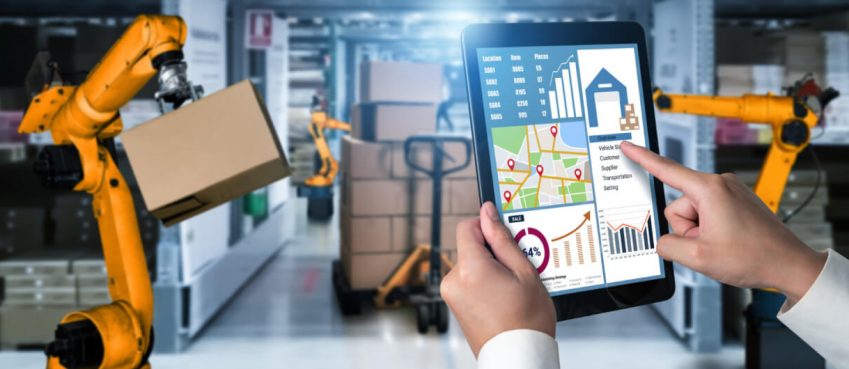
Over the years, technology has revolutionized the way we do business and has allowed companies and organizations from every industry in the world to reach new heights of success.
Through innovative software and hardware solutions, business technology has expedited numerous mission-critical processes, automated many crucial and menial tasks, improved productivity in the workplace through management apps, and it has taken the modern business world forward as a whole.
Needless to say, one of your key objectives should be to invest in technology in your own company if you want to retain your competitive advantage in the tech-driven business sector.
One of the main areas you should focus on digitizing and transforming with technology is, of course, company-wide communication.
This means improving both internal and external communication in order to improve productivity, collaboration, customer relations, and ultimately drive business success.
Here’s how to do it.
Introducing virtual personal assistants
If everyone had their own personal assistant, chances are that their productivity and output would skyrocket pretty quickly. Alas, personal assistants are typically reserved for middle and upper management, as they require a sizable investment that the company simply can’t put towards its lower-tier employees.
Until now, that is. With the coming of artificial intelligence and machine learning, along with the development of smart business software, work environments are currently experiencing a surge in the use of virtual support staff.
Nowadays, it’s not uncommon to see a digitized office space that has a virtual office manager, or that every employee has their own virtual assistant to note everything down, manage their schedule and correspondences, and simply make the employee’s daily routine a little less hectic.
This not only leads to greater productivity, but it also makes communication in the workplace much more effective and straightforward, eliminating the noise and the clutter.
Leveraging artificial intelligence and machine learning
Speaking of the various applications and uses of artificial intelligence and machine learning in the business sector, it’s interesting to note just how these technologies can transform the modern workplace, and how they can improve your communication strategy.
Not only can you leverage AI and machine learning to expedite the flow of information between departments and create actionable data with visual communication, but you can also use it to boost your outreach strategies in the process.
Artificial intelligence and machine learning systems can gather vast amounts of customer and client data to learn about your target demographic and create hyper-personalized communication experiences, leading to greater engagement, brand trust and recognition, and improved customer satisfaction.
With the help of AI, your sales teams, marketing experts, and PR specialists can take your personalization efforts forward and make personalization an integral part of your overall communication strategy
![]()
VoIP systems are transforming modern businesses
Over the years, business leaders have realized that traditional phone systems, albeit imperative for business success, were no longer able to satisfy the needs of a digital workplace.
Even though it is important to have a phone system in your company, traditional phone infrastructures are costly and they don’t possess the necessary digital features to support the modern tech-savvy workforce. That’s why modern VoIP solutions have overtaken traditional phone systems in recent years.
Nowadays, companies will invest in the top VoIP systems on the market that bring contemporary features to the workplace like full mobile optimization and mobile apps, voice-to-text transcription, automatic call forwarding and scheduling, video conferencing, analytics, and many more.
This is possible because VoIP systems are cloud-based, making them easy to set up and integrate into your workplace, and you can easily scale the features to your current and long-term needs.
Also read: Best ecommerce platform in 2021
Outsourcing menial tasks to chatbots
Chatbot technology has been on the rise over the past decade, even though the concept is far from new. In the early 2000s, chatbot technology was still in its infancy and therefore it wall ill-suited for external communication, even when it came to solving menial issues.
In the current technological age, though, chatbot technology has advanced so far that companies are now using it to drive their communication strategies forward and boost the efficiency of their sales, marketing, and customer service departments.
AI-driven chatbots are able to communicate with customers via chat and direct messaging, all the while utilizing advanced analytics to quickly craft special personalized deals and discounts to boost conversions and lead generation.
Customer service can also leverage chatbots to communicate with customers efficiently and on a 24/7 basis, thus improving their satisfaction and experience.
Also read: [New] Top 10 Opus Clip Alternatives To Create Viral Short Clips
Communication via collaborative tools
Finally, keep in mind that communication tools are not transforming business communication single-handedly – project management tools are also boosting communication across the board.
Simply put, now that companies are investing in project and task management tools that have built-in real time communication and collaboration features, employees from various departments are able to work together no matter where they are and track progress and performance in real time.
This type of cloud-based technology is not only improving cross-department communication, but it’s also making seamless collaboration a reality, leading to better productivity and output.
Wrapping up
Effective internal and external communication would not be possible today without technology, simply due to the hectic nature of the modern business sector.
Now that you know how technology is helping companies thrive, be sure to leverage these tips to take your communication strategy and your business forward.
Top 10 News
-
01
Top 10 Deep Learning Multimodal Models & Their Uses
Tuesday August 12, 2025
-
02
10 Google AI Mode Facts That Every SEOs Should Know (And Wha...
Friday July 4, 2025
-
03
Top 10 visionOS 26 Features & Announcement (With Video)
Thursday June 12, 2025
-
04
Top 10 Veo 3 AI Video Generators in 2025 (Compared & Te...
Tuesday June 10, 2025
-
05
Top 10 AI GPUs That Can Increase Work Productivity By 30% (W...
Wednesday May 28, 2025
-
06
[10 BEST] AI Influencer Generator Apps Trending Right Now
Monday March 17, 2025
-
07
The 10 Best Companies Providing Electric Fencing For Busines...
Tuesday March 11, 2025
-
08
Top 10 Social Security Fairness Act Benefits In 2025
Wednesday March 5, 2025
-
09
Top 10 AI Infrastructure Companies In The World
Tuesday February 11, 2025
-
10
What Are Top 10 Blood Thinners To Minimize Heart Disease?
Wednesday January 22, 2025







